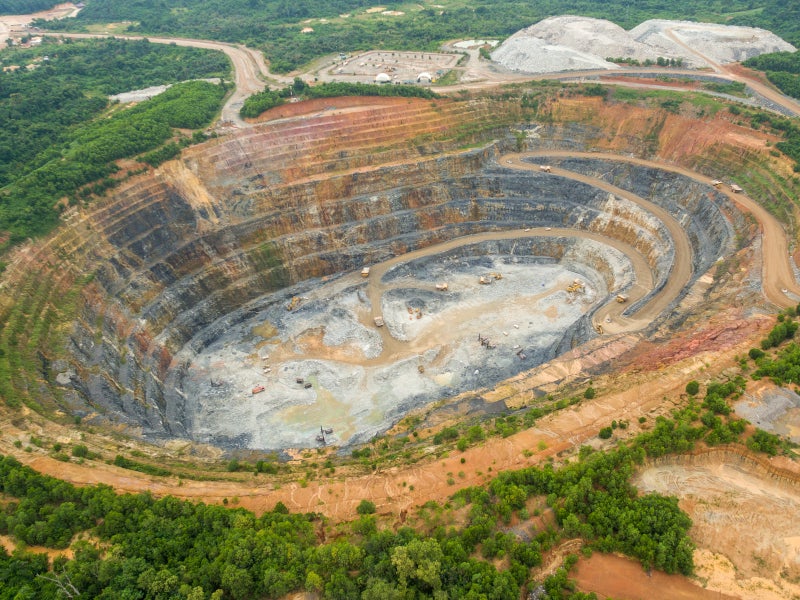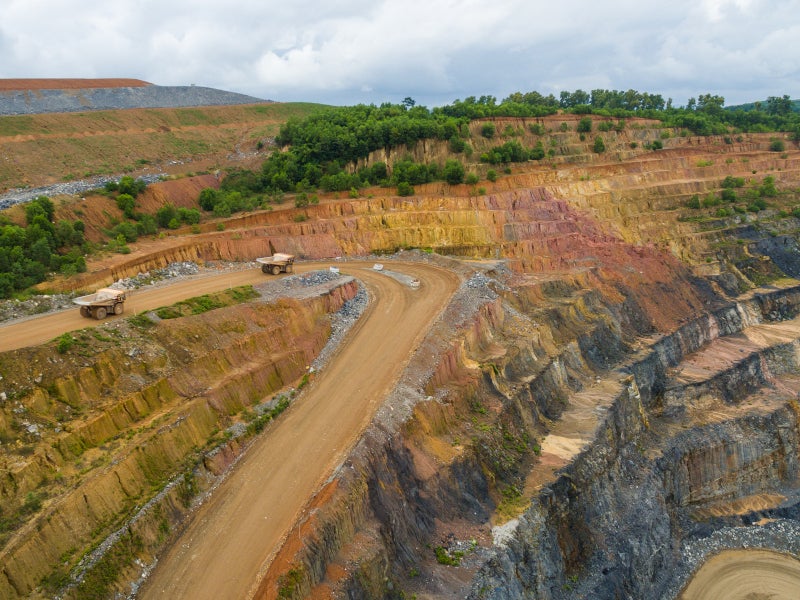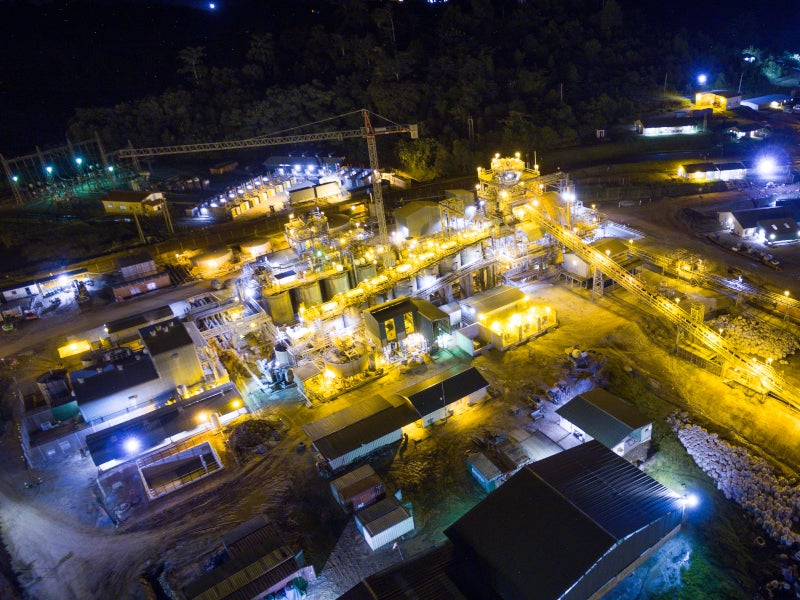The Edikan gold mine (EGM) is a large-scale, low-grade conventional open-pit mine in Ghana.
The mine produced first gold in 2011 while commercial production began in January 2012.
Production from the mine stood at more than 1.4 million ounces (Moz) of gold as of December 2018 and is estimated to average 181,000oz of gold per annum over the current mine life of six years.
EGM is operated by Perseus Mining while Franco-Nevada holds an effective 1.5% net smelter return (NSR) royalty in the mine. Perseus owns a 90% interest in the operation and the remaining 10% is held by the Government of Ghana.
A revised life-of-mine plan was introduced following an update in mineral reserves estimates.
An agreement was implemented in January 2019, marking the transition of mining operations to a single mining contractor from the earlier practice of two contractors. The transition is expected to have a positive effect on mining costs over the remaining mine life.
Edikan gold mine location, geology and mineralisation
The Edikan gold mine is located in the Ashanti Gold Belt of southwestern Ghana, West Africa. It can be accessed via a public road from the town of Ayanfuri.
The mine is situated on the Ayanfuri and Nanankaw mining leases, covering an area of 93km² and located 107km away from the city of Kumasi.
The site contains large gold deposits and the mineralisation is hosted by Paleoproterozoic aged rocks of the Birimian flysch-type metasediments. The deposits are present near the western flank of the Ashanti Greenstone Belt.
The property is marked by several small basin-type or cape coast-type granite bodies along different regional structures.
The gold mineralisation primarily exists both in the granite bodies and sediment-hosted shear zones. The gold occurrence is in the form of very fine grains, mostly along boundaries of sulphide grain and in fractures in sulphides.
Edikan gold mine reserves
The mine has estimated proven and probable reserves of 1.608Moz of gold grading at 1.1g/t as of December 2019. The measured and indicated mineral resources are estimated to be 2.699Moz.
Mining at the Edikan gold mine
The ore at the Edikan gold mine is sourced from five open pits, known as AF Gap (AFG), Fobinso (FOB), Fetish (FET), Esuajah North (ESN), Bokitsi South (BKS) and historical heap leach material contained in the ‘Africa Heap’.
The mine is a conventional open-pit mining operation, employing grade control, drill and blast, load and haul and dewatering.
The remaining mineralisation in the Abnabna-AF Gap, Esuajah North, Fetish and Bokitsi South deposits can be targeted by open-pit mining methods while that in the Esuajah South deposit is exploitable by underground mining methods.
The open-pit reserves will be exploited by conventional open pit mining using hydraulic excavators and trucks. It will involve mining bench heights of 5m with flitches of 2.5m to reduce ore loss and waste rock dilution.
The underground reserves will be tapped using sub-level mining under rock fill (SURF), which is a bulk, semi-selective, underground mining method that introduces waste from the surface instead of the hanging-wall caving.
It involves breaking of the ore through drilling and blasting of up-hole rings along each ore drive. The waste fill is added from the surface to replace the ore extracted from the underground mine.
Processing at Edikan gold mine
The sourced ore is processed through a centralised processing facility with a nominal annual capacity of 7Mtpa, producing between 180,000oz and 200,000oz of gold a year.
The processing circuit comprises single stage crushing, semi-autogenous grinding, gravity recovery, flotation, regrind and carbon-in-leach recovery (CIL) to extract gold.
The plant has been operating since 2011. The CIL and flotation circuits have tailings storage facilities.
Infrastructure at the Edikan gold mine
Water for processing the ore is received from the flotation tailings storage facility (FTSF). A surface catchment area of approximately 380ha collects the recycled water along with rainwater.
Bores are used for obtaining raw water and potable water while raw water is sometimes obtained from water pumped from mine pits.
The site has a grid connection, in addition to on-site diesel generators with a capacity of 14MW. Site infrastructure also includes camp accommodation for employees, workshops and offices.
Contractors involved
Ausdrill’s subsidiary African Mining Services (AMS) was awarded a contract to provide open-pit mining services at the Edikan mine. The company won another contract to perform blasting, drilling, load and haul operations at Esuajah North pits.
Rocksure International serves as a mining contractor. Advisian provided services related to project delivery, public-private partnerships (PPP) and procurement strategy.




